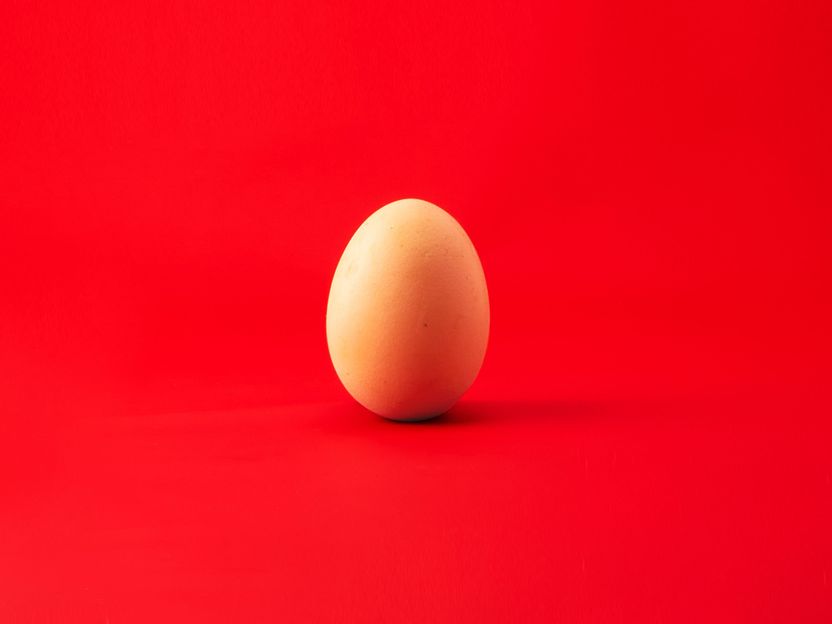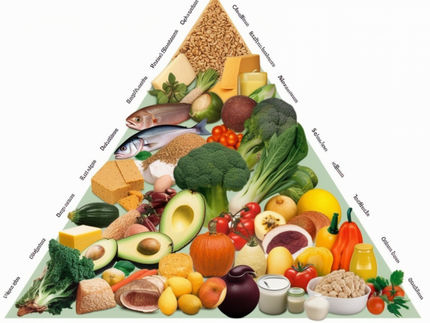How dangerous is the Easter egg?
The Austrian Academic Institute for Nutritional Medicine informs
Advertisement
Already one and a half eggs or 300 milligrams cholesterol daily increase risk for cardiovascular diseases - ÖAIE recommends conscientious consumption and refers to "healthy plates".

Photo by REVOLT on Unsplash
In Austria about 2 billion eggs are consumed per year, around Easter time it is estimated that 70 million eggs are consumed. The question of whether eggs and the cholesterol they contain are harmful to health or not has been on people's minds for many years. According to a recent study published in the Journal of the American Medical Association (JAMA), more frequent egg consumption actually leads to an increased risk of cardiovascular disease. The Austrian Academic Institute of Nutritional Medicine (ÖAIE) advises moderate consumption.
JAMA Study: Increased consumption of eggs favors occurrence of cardiovascular disease
The study population included 29,615 American adults (including 13,299 men) with an average age of 51.6 years. During the average observation period of 17.5 years, there were 5,400 incidents of cardiovascular disease and 6,132 deaths. The result of the study: The additional consumption of 300 milligrams of cholesterol daily and the consumption of an additional half ice cream per day significantly increased the risk of cardiovascular disease and premature death.
ÖAIE President Widhalm: Enjoy Easter eggs with moderation and pay attention to healthy nutrition
One egg contains 200 milligrams of cholesterol, the daily intake of a maximum of 300 milligrams is recommended. Kurt Widhalm - nutritionist and president of the ÖAIE - advises moderate consumption, but warns against calling eggs unhealthy. "Eggs are an important source of protein and vitamins and, to a certain extent, part of a healthy diet. The 'healthy plate', which the ÖAIE sees as a better alternative to the current nutrition pyramid, also contains eggs," Widhalm explains.
In general, Widhalm recommends a much stronger plant-based diet: a maximum of 35 grams of red meat per day, a higher proportion of pulses, fruit, vegetables and fruits, a reduction in saturated fatty acids and an increase in monounsaturated and polyunsaturated fats in our food intake, as found in nuts, seeds and vegetable oils. This would significantly reduce the risk of cardiovascular disease.
Since the previous nutritional recommendations in the form of "nutrition pyramids" unfortunately proved to be ineffective with regard to changing existing eating habits, the ÖAIE prefers the presentation of the Harvard Medical School - a "healthy plate" with four different proportions of vegetables, fruit, whole grain and protein products as well as the recommendation of sufficient fluid intake and daily physical activity.
Cholesterol as a trigger of cardiovascular diseases, but risk of high egg consumption depends on type
According to Widhalm, the amount of cholesterol that is harmful to the body depends strongly on the individual. In addition to eggs, cholesterol is found in butter, sausage and meat, but also in egg pasta such as traditional noodles or spaetzle. It is a vital substance that is both ingested through food and produced by the body itself. Cholesterol is a major contributor to the structure of the cell membrane and to many metabolic processes in the brain. It is also an important starting material for the production of bile acids for fat digestion and for the production of vitamin D and certain hormones such as estrogen, testosterone and cortisol.
If the body has too much cholesterol, it is deposited in the blood vessels where it narrows the arteries. Blood flow through the blood vessels is poorer, resulting in cardiovascular disease, which can lead to heart attack or stroke. How much cholesterol the body absorbs from food and how well it uses it depends on the type: Genetic factors and metabolism play a role.
Note: This article has been translated using a computer system without human intervention. LUMITOS offers these automatic translations to present a wider range of current news. Since this article has been translated with automatic translation, it is possible that it contains errors in vocabulary, syntax or grammar. The original article in German can be found here.



























































